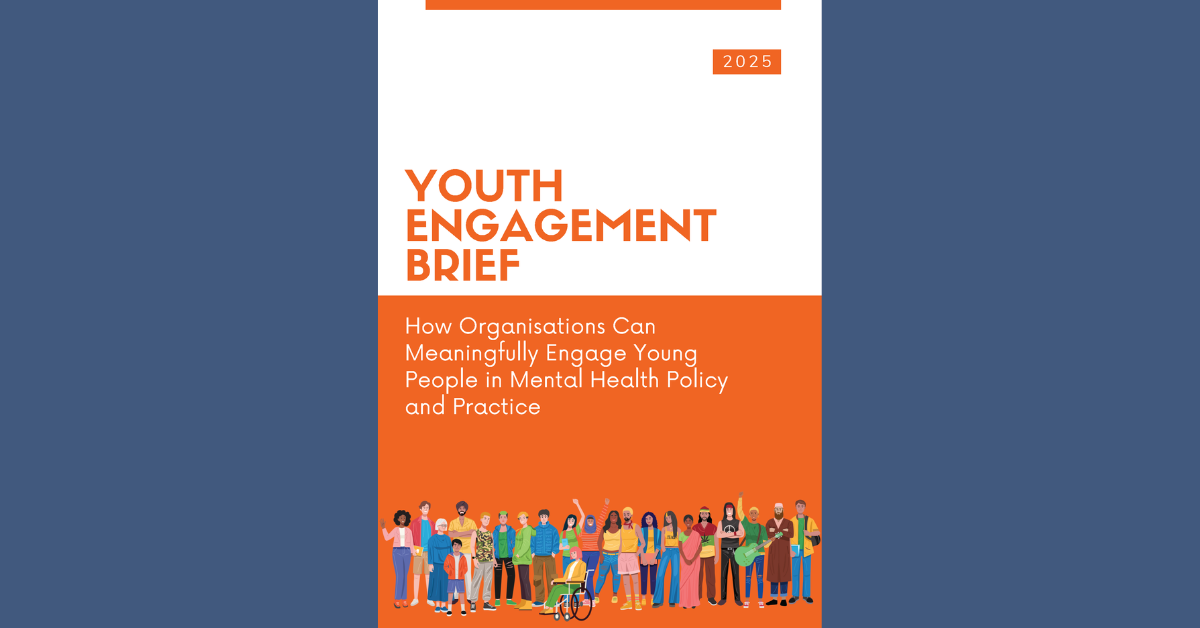By Viola Graef, MSc and Jura Augustinavicius, PhD
Research shows that climate change is associated with negative impacts on mental health and wellbeing. However, there is not much literature on interventions to address these impacts, particularly in humanitarian settings(1–3).
Given the magnitude of the climate crisis and the multiple connections with mental health and psychosocial wellbeing, there is a pressing need for further programmatic research in this area. However, the MHPSS field must not only address direct MHPSS needs but also look outwards towards how it can contribute to broader actions to prevent, mitigate, and adapt to the climate crisis and drive changes needed at both individual and population levels.
To respond to this gap, we have conducted a study to understand pressing research priorities. In the study, The MHPSS and Climate and Ecological Crisis Research Working Group, convened by the MHPSS Collaborative, asked professionals working in climate crisis and MHPSS intervention research, policy and practice about their most pressing research priorities.
Top research priorities for MHPSS and climate crisis intervention research.
Priorities were ranked in order of importance by study participants
- What are the direct (e.g., extreme weather events) and indirect (e.g., food insecurity resulting from droughts and land loss) impacts of climate change on mental health and psychosocial well-being and how are these impacts related?
- How does climate change affect the mental health and psychosocial well-being of different populations, such as frontline communities, children and young people, migrants, people with disabilities, lower income populations, the elderly, people already experiencing crises such as armed conflict, people living with pre-existing mental health conditions, people facing discrimination and people with intersectional identities?
- What are different perceptions and understandings of the climate crisis across different cultures and contexts?
- How are different populations adapting to and coping with the climate crisis?*
- How does mental health and well-being contribute to engagement in environmental protection, climate change adaptation, and climate change mitigation efforts?
- How can we address mental health and psychosocial well-being concerns related to the climate crisis, at the individual, family, and community level?
- How can we promote positive mental health and psychosocial well-being in the context of the climate crisis?
- What are the best practices to support the mental health and well-being of different populations in the context of the climate crisis? *
- How can we prevent adverse impacts on mental health and psychosocial wellbeing as a result of the climate crisis?
- Do existing MHPSS programmes need to be adapted for implementation in the context of the climate crisis, and if so, how should these programmes be modified?
- How do MHPSS interventions need to be adapted to meet specific cultural and community needs in the context of the climate crisis?
- How can we design interventions to meet mental health and psychosocial needs while also contributing to climate change adaptation and/or mitigation?
- How can community ownership of climate crisis responses be promoted?
- How can we promote community resilience in the context of the climate crisis?
- What obstacles exist for community leadership and engagement in MHPSS as part of climate crisis responses and how can these obstacles be overcome?
- What are the resources, training and capacity needs for implementing MHPSS and climate crisis interventions?
- How does promoting mental health, psychosocial wellbeing and community resilience contribute to engagement in environmental protection, climate change adaptation and climate change mitigation efforts?
- How can we evaluate the effectiveness of existing MHPSS interventions in the context of the climate crisis?
- How can we measure mental health and psychosocial wellbeing indicators and outcomes that are culturally appropriate and consistent within climate crisis and MHPSS programming?
- How can we evaluate MHPSS outcomes within multisectoral responses to the climate crisis?
Note: Four research priorities did not achieve agreement amongst participants and were excluded from this list.
Prioritising vulnerable peoples and communities
The identified research priorities focused primarily on understanding the MHPSS needs and contexts of different populations affected by the climate crisis. These include frontline communities living in settings most heavily affected by the climate crisis, children and young people, refugees, internally displaced people and migrants, people with disabilities, lower income populations, the elderly, people already experiencing crises such as armed conflict, people living with pre-existing mental health conditions, people facing discrimination, and people with intersectional identities.
Focus on gaps
Other research priorities focused on gaps in the design and implementation of interventions, such as whether any best practices exist or how MHPSS needs could be met by intervening at multiple levels. This focus may reflect the nascent stage of climate crisis and MHPSS research, as a common thread across many research priorities included a lack of clarity on what MHPSS programs and policies may look like in the context of the climate crisis.
Ranking 20 research priorities
Participants for the study were recruited based on their professional affiliation with a humanitarian or development organization or agency, expertise in climate crisis and MHPSS work, and/or lived experience living or working in a setting affected by the climate crisis. This was to ensure that the results of this study closely corresponded to the evidence needs on the ground. In total, 91 experts participated in the study, working primarily but not exclusively in MHPSS programming or practice. Participants agreed on 20 research priorities, which were ranked according to importance.
The results of this study add onto recently identified global priorities for climate change and mental health research (1) by focusing specifically on intervention research (i.e. research with a programmatic and/or policy focus) and by recruiting a sample predominantly made up of humanitarian and development professionals. From a funding and research perspective, the results of this study can be used to emphasize priority areas for intervention research and funding allocations. From a programmatic perspective, the research priorities highlight the importance of inclusive needs and resource assessments to adapt existing intervention strategies or identify programming gaps to develop new interventions. Organizations should also be encouraged to collect and use monitoring and evaluation data focused on MHPSS and climate crisis indicators and outcomes to assess progress in addressing these interconnected issues.
Special Issue on MHPSS and the climate crisis
The Intervention Journal recently published a Special Issue on MHPSS and the climate crisis, with support from the MHPSS Collaborative. Our MHPSS and climate and ecological crisis consultants Viola Graef and Dr. Jura Augustinavicius share key findings from a research agenda-setting study published in the Special Issue.
To read a more in-depth overview of the research priorities and their implications for research, policy and practice, please find the full study published in the Intervention Journal Special Issue on MHPSS and the climate crisis here .






